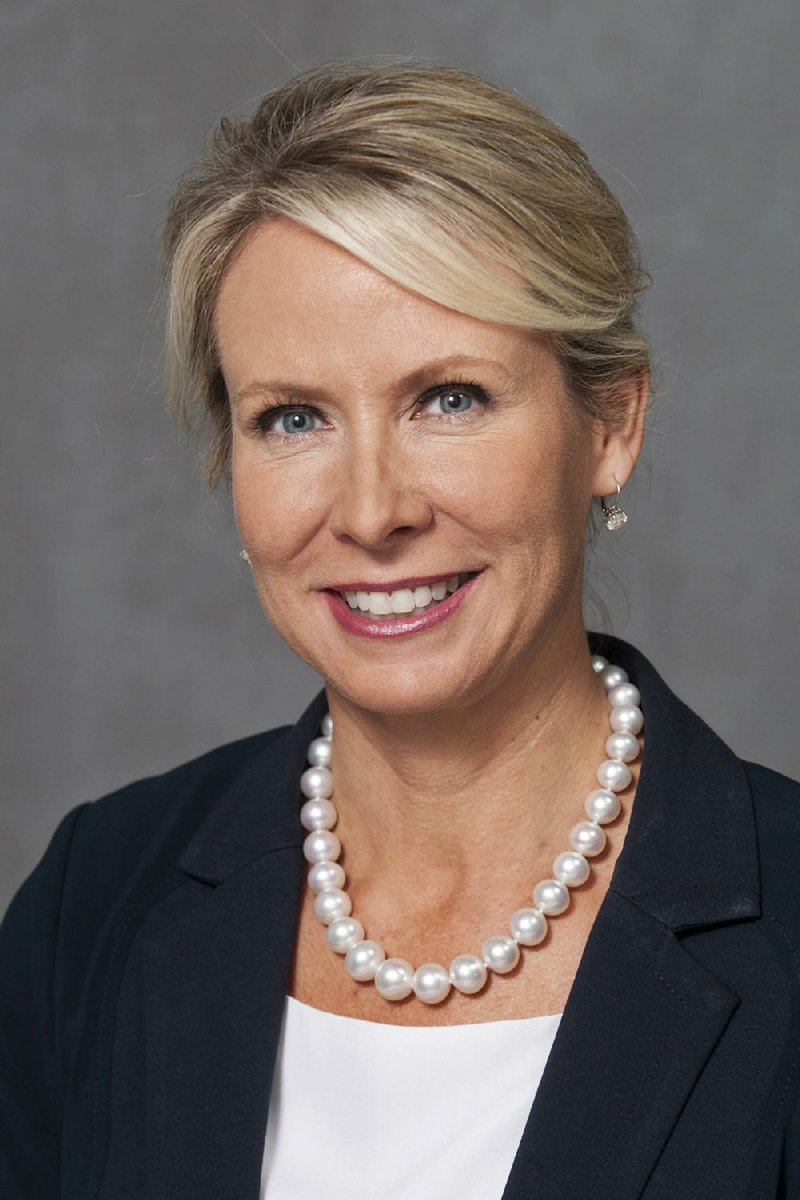Arkansas Supreme Court Justice Courtney Goodson will run for re-election this spring, a campaign consultant said Monday. She will face David Sterling, the top attorney for the state Department of Human Services.
Goodson was elected to her first eight-year term on the high court in 2010. Two years ago, she lost a bid to become chief justice -- a different elected position -- to the current leader, Dan Kemp.
Her opponent, Sterling, also is taking another shot at a statewide race. In 2014, he lost in the Republican primary runoff for attorney general to Leslie Rutledge.
Sterling, of Little Rock, confirmed his plans to run in a phone call with the Arkansas Democrat-Gazette on Monday evening. A formal announcement will come at a later date, he said.
Goodson could not be reached for comment at her Supreme Court chambers. Her campaign adviser, Keith Emis, confirmed her re-election plans, but said it was too early to say whether she would kick off the race with a formal announcement.
The news of Goodson's re-election plans was first reported Monday afternoon by The Associated Press. Goodson's seat, Position 3, is the only spot up for election this year on the seven-member court.
Two years ago, a pair of Supreme Court races -- including Goodson's unsuccessful bid against Kemp -- attracted more than $1 million in out-of-state spending and raised concerns about "dark money," so called because the contributors of those funds remained anonymous.
Goodson was the target of "dark money" attack ads purchased by the Judicial Crisis Network, a Washington, D.C.-based conservative group. Goodson did not receive any support from anonymous campaign groups.
She was one of the subjects of a 2016 investigation by the Democrat-Gazette detailing campaign contributions she received from class-action law firms associated with her husband, John Goodson.
Unlike "dark money" spenders, Goodson reported her donors in campaign finance reports. As required by law, she also recused from cases directly involving her husband.
Emis, her campaign consultant, said Monday he was not sure if Goodson had started raising money for her campaign.
Sterling said he has not accepted any donations as of Monday. Asked if he expected "dark money" to again play a role in this year's Supreme Court race, Sterling said he did not know, and that he had not been in contact with any out-of-state groups about his plans to run.
Neither candidate released any information Monday about their campaign messages. Like all judicial positions in Arkansas, the Supreme Court is officially nonpartisan, and candidates often avoid discussing their stances on political issues.
According to state election records, Emis' firm, Diamond State Consulting, did work for the successful statewide campaigns of Republicans Gov. Asa Hutchinson and U.S. Sen. Tom Cotton.
Goodson, who lives in Fayetteville, has in the past received support from prominent Democrats, including former President Bill Clinton and former U.S. Sen. David Pryor, and Republicans such as former U.S. Rep. John Paul Hammerschmidt. Goodson served on the Arkansas Court of Appeals for two years before joining the Supreme Court in 2011.
Among her major decisions on the high court, Goodson wrote for the majority in the court's ruling to uphold the state's Method of Execution Act. She joined the majority in the court's 2016 split decision that married same-sex couples do not have the same rights as heterosexual couples do to be automatically listed together on their children's birth certificates. That ruling was later reversed by the U.S. Supreme Court.
Goodson also voted with the majority last year to outlaw the practice of lawmakers directing state surplus money toward pet projects.
Upon announcing his campaign for attorney general in 2013, Sterling told a reporter he had worked on the campaigns of several Republicans, and he promised to "stand up" to the federal government.
The election for Supreme Court justice and other judicial elections will take place May 22, the same day as the party primaries. The general election is Nov. 6, which is also the same day for any judicial runoffs that are needed.
No other candidates have publicly come forward to announce plans to run for the high court.
Supreme Court justices are elected statewide to eight-year terms and earn an annual salary of $169,830.
Metro on 01/23/2018

